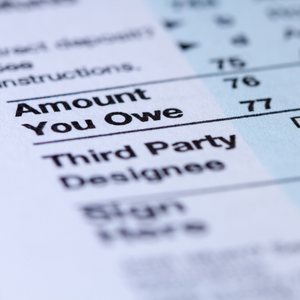
Understanding Hoa Fees: What Buyers and Sellers Need to Know
Memphis homebuyers and sellers must know who pays HOA fees at closing. Keeping standard facilities and amenities in a residential community costs HOA fees.
Buyers and sellers can negotiate these expenses during closing. Sellers usually pay HOA fees until closing, while buyers do so afterward.
Both parties must carefully analyze the acquisition agreement to see how current or prepaid HOA dues will be handled. Sellers may offer to pay part of future HOA payments to attract purchasers.
Buyers should also know what these fees cover and if there are any upcoming increases or special charges. Communication regarding HOA fee responsibilities prevents disagreements and streamlines Memphis real estate transactions.
The Role of HOAs in Property Management and Maintenance

Memphis, TN real estate transactions depend on homeowners associations (HOAs) for property management and maintenance. It is essential to understand who pays HOA fees at closing. These associations keep parks, pools, and clubhouses clean and attractive.
They provide gardening, security, and trash pickup, improving neighborhood life. Memphis purchasers must understand how these fees are allocated during closing to prevent unexpected costs.
HOA payments usually cover shared facilities and property improvements that benefit all homeowners. Sellers may owe prorated costs until closing, while purchasers assume financial responsibility after purchasing.
Understanding who pays what at closing helps Memphis real estate transactions run smoothly and promotes openness.
Pros and Cons of Living in an HOA Community
In Memphis, TN, homeowners’ associations offer valuable features and face challenges similar to those found in other communities. Property owners and residents must comply with aesthetic norms to maintain order within the neighborhood. HOAs selflessly foster community and security.
Subdivision associations may offer pools, fitness centers, clubhouses, and other amenities to cater to living standards. However, these additional perks are subject to HOA fees, which are mandatory and subject to change, necessitating residents to appropriately budget.
Restrictive policies and harsh punishments for failing to abide by compliance terms have turned off many homeowners. In the Memphis housing market, real estate transaction participants are exposed to cost burdens due to who assumes payments for the HOA fees incurred at closing.
All agree that the subdivision framework is beneficial; however, aggressive limits on how residents modify and decorate the exteriors of their homes are perceived to infringe on residents’ autonomy.
How Location Affects Hoa Fees: A Comparative Analysis
When studying how location influences Memphis real estate HOA fees, consider the costs of different communities and properties. Memphis HOA rates depend on amenities, property valuations, and desirability.
A downtown condominium’s exceptional location and access to luxury facilities like rooftop pools and private gyms may increase HOA fees. While suburban complexes may charge less, they nevertheless provide landscaping and security.
Newer communities have higher HOA fees to maintain modern amenities and infrastructure. Buyers must understand these variances to determine who pays what share of HOA fees at closing and how these costs fit into their budget in Memphis’ diverse real estate market.
Key Factors Influencing Hoa Fees at Closing
Several factors determine who pays HOA fees when closing Memphis, TN real estate deals. The purchase agreement heavily influences who pays the homeowners association dues at settlement.
Local market customs may lead sellers to cover these fees to make the property more appealing, while buyers may do likewise.
Closing timing might also affect prorated HOA costs, depending on whether the seller prepaid or whether ownership transfer dates need to be adjusted.
Some mortgage agreements require either party to pay specific fees before closing, complicating closing costs. Memphis real estate buyers and sellers must understand these aspects before closing on HOA fees.
Buyer’s Guide to Assessing Potential HOA Costs
Buyers of Memphis, TN, property must know who pays HOA fees at closing to estimate expenditures appropriately. In many property agreements, homeowners association costs differ, affecting your budget.
These costs usually cover standard area maintenance, landscaping, security, and community facilities. The purchase agreement defines who pays these closing costs, so buyers should read it carefully.
Please discuss Memphis, TN, HOA costs with your real estate professional and consider incorporating them into your budget strategy. Reviewing a property’s HOA documents will reveal monthly dues and post-closing special assessments.
Analyzing the Financial Health of a HOA Before Buying or Selling

Before purchasing or selling property in Memphis, you must assess a homeowners association’s (HOA) financial condition to determine who pays HOA fees at closing. A thorough HOA financial evaluation includes evaluating budget data, reserve monies, and outstanding debts or liabilities.
Buyers should request detailed financial statements and meeting minutes to determine if the HOA has enough reserves for repairs and maintenance. Special assessments or association dues increases may affect closing discussions for sellers.
How well a HOA manages its finances might affect real estate transactions and buyer and seller HOA fee responsibilities. If the HOA’s finances are unclear, buyers may negotiate for the seller to fund specific fees. A financially stable HOA may not require such concessions.
Analyzing these aspects informs all parties about Memphis HOA fees while closing a house.
Tips for Budgeting Monthly and Annual HOA Expenses
To budget for monthly and annual HOA fees in Memphis real estate deals, you must grasp their extent and how they affect your financial strategy. Start by studying your community’s bylaws and HOA cost structure, which lists services like landscaping, maintenance, security, and facilities like pools and fitness centers.
Both recurring expenses and extra assessments for unexpected repairs or enhancements must be considered. To guarantee precise financial planning, consider setting aside a contingency fund expressly for HOA-related costs, which can assist in mitigating sudden increases in fees or additional charges.
Engaging with current residents or attending HOA meetings can provide significant insights into previous fee trends and prospective initiatives that might affect future budgets. By combining these ideas into your financial approach, you can better anticipate HOA obligations and keep a balanced budget within the Memphis real estate market.
Legal Considerations for HOA Fees During Property Transfers
Memphis real estate transactions are complicated, so understanding HOA fees before closing is vital. Who pays outstanding homeowners association dues might affect discussions and financial planning in property transactions.
Many purchase agreements provide that the buyer or seller will pay these fees at closing. Memphis real estate laws and HOA rules may affect this decision.
For transparency and Tennessee disclosure compliance, sellers must disclose unpaid HOA fees before closing. Buyers should carefully check HOA documents for post-closing assessments or fee increases.
A Memphis-savvy real estate attorney can clarify and guarantee that all parties comply with HOA fee obligations throughout property transfer.
State-Specific Regulations Governing Hoa Fee Payments
Understanding who pays HOA fees at closing in Memphis real estate purchases requires negotiating state-specific restrictions. Tennessee property rules are crucial to allocating homeowners’ association fees following a property sale.
Local norms and practices often affect real estate transactions, but the purchase agreement usually determines who pays these costs. Buyers and sellers should carefully check their contracts to determine if they will pay prorated HOA fees or unpaid dues at closing.
Memphis-based real estate professionals and attorneys can help you understand these restrictions and comply with state laws on HOA fees during property closings. Understanding these nuances helps avoid disagreements and streamline transactions in Memphis’ competitive real estate market.
Negotiating Hoa Fees in Real Estate Transactions
In Memphis real estate transactions, negotiating who covers the HOA fees at Negotiating who pays HOA fees at closing in Memphis real estate deals might be crucial. Buyers and sellers have vested interests in these conversations, as homeowners’ association fees can considerably affect the overall property acquisition or sale cost.
Buyers often seek to minimize their upfront payments by negotiating for the seller to absorb some or all of the HOA fees owed at closing. Sellers may utilize these fees as a negotiation weapon to make their property more appealing in a competitive market.
The bargaining process usually involves examining the property’s HOA fee structure and how costs are split. Both sides must collaborate with their real estate experts to specify any HOA fee agreement in the purchase contract.
By expressly agreeing on HOA obligations before closing the sale, this strategy streamlines transactions and prevents disagreements.
If you want to avoid the back-and-forth over HOA dues entirely, buyerhouse buys houses for cash in Millington—letting you skip the hassle of negotiating or paying HOA fees at closing.
Who Pays What? Dividing Costs Between Buyer and Seller
Memphis homebuyers and sellers must know who pays HOA fees at closing. These costs are usually split according to the purchase agreement.
Sellers usually must pay HOA costs until closing to avoid unpaid ones. Buyers may pay prorated fees after closing to reflect their new ownership status.
During contract negotiations, the buyer and seller can negotiate transfer fees and homeowner association capital contributions. Both parties must write down these responsibilities to avoid closure disagreements.
Understanding how HOA payments are split helps ensure a smooth sale and prevents unforeseen financial commitments.
The Process of Allocating HOA Fees at Closing Explained
Memphis homebuyers and sellers must know who pays HOA fees at closing. To avoid disputes, these homeowners’ association payments must be correctly allocated during closing.
The buyer and seller usually split HOA fees based on the closing date. If the buyer has prepaid HOA fees, the seller may earn a credit for the period the buyer occupies the home after closing.
If fees are due soon after closing, the buyer may have to pay the seller for their portion. These details are usually in the purchase agreement to clarify cost distribution.
Both parties should review their HOA dues responsibilities in advance to avoid surprises at settlement. Title firms and real estate brokers often provide thorough breakdowns to help allocate homeowners association charges and credits at closing.
Understanding these components helps the Memphis property transfer smoothly and informs both parties of their HOA fee obligations.
Impact of Delinquent HOA Fees on Real Estate Sales

Delinquent HOA fees can delay Memphis real estate closings and affect buyers’ and sellers’ finances. Late HOA payments create a lien on the property, preventing the sale from proceeding or complicating the deal.
If talks fail, buyers may inherit these dues. Sellers may have to pay these overdue fees at closing to facilitate the transfer of ownership.
Delinquent HOA fees can affect the buyer’s budget and delay the sale, so real estate professionals are crucial in identifying them early. Lenders may require proof of current HOA dues during underwriting to protect their property investment.
To avoid unforeseen financial commitments and guarantee a successful closing, all parties in a Memphis transaction must understand how unpaid HOA fees affect real estate sales.
Seller Strategies for Managing Outstanding HOA Dues
Memphis real estate sellers often seek ways to manage HOA dues after closing. One frequent method is negotiating with the buyer to include the remaining homeowners association fees in the purchase agreement, ensuring easy settlement.
To reduce buyer concerns, sellers may also pay off HOA dues before offering their homes. Understanding HOA terms and regulations helps sellers anticipate late fee penalties and extra assessments during negotiations.
Sellers may negotiate Memphis’s market and homeowners association restrictions with a real estate professional who knows them well and can minimize closing costs.
Preparing for Closing: Checklist for Addressing All Fee Obligations
Understanding who pays HOA fees and meeting all fee requirements is crucial when finishing Memphis real estate transactions. Buyers and sellers must explicitly state their duties regarding homeowners association fees in the purchase agreement to minimize confusion at closing.
The settlement document shows whether the seller settles prorated HOA dues until closing or transfers them to the buyer. Before closing, both parties should check for outstanding special assessments.
A real estate attorney or professional can help manage all HOA fee financial obligations, ensuring a seamless homeownership transition. Understanding these factors helps avoid surprises and ensures Memphis real estate laws compliance.
How to Appeal Unreasonable or Unexpected Charges by Hoas
In Memphis real estate transactions, understanding who handles HOA costs at closing is critical, especially if you receive unfair or unexpected charges from the homeowners association (HOA). If you believe these allegations are unjustified, knowing your appeal rights is crucial.
First, read the HOA’s rules and governing documents to comprehend the charges. Collect correspondence and bills to support your claim.
Please discuss your concerns and seek clarification on any confusing charges with the HOA board. If you cannot resolve the issue, consider presenting your case at a board meeting.
Alternative dispute resolution methods like mediation can help you avoid legal action. A Memphis-savvy real estate attorney can help you fight these fees and preserve your finances during closing.
Real Estate Professional Insights: Navigating the Complexities of HOAs
HOA fees are complicated in Memphis real estate deals, making real estate professionals vital. Buyers and sellers must know who pays HOA fees at closing.
Memphis real estate professionals know how to negotiate these fees, choosing whether the buyer or seller pays. Professionals must disclose any HOA financial commitments early because HOA fees can dramatically affect property transaction costs.
Real estate professionals help clients understand HOA contracts and identify pending dues or assessments that may hinder the sale. They also help buyers and sellers negotiate HOA fee contracts, smoothing the closing process and lowering disputes.
Memphis’ unique home market needs this expertise because HOA restrictions can affect closing fee responsibilities.
Future Trends in Homeowner Association Finances and Fees
HOA finances and fees in Memphis real estate transactions have changed recently, with future trends signaling more transparent and predictable closing charges. As more purchasers focus on financial obligations before buying, HOAs are pressured to explain fee structures and anticipated hikes adequately.
Due to a growing need for transparency and clarity in real estate transactions, buyers know who pays HOA fees at closing. As technology advances, more organizations adopt digital solutions to manage dues and assessments, improving HOA-homeowner communication.
This innovation could transform the structure and communication of fees, providing buyers and sellers with a comprehensive understanding of their financial responsibilities. All parties participating in Memphis real estate transactions must stay aware of HOA fee increases and their impact on closing processes.
Who Pays the HOA Fees at Closing?
Memphis homebuyers and sellers must know who pays HOA fees at closing. The parties’ conditions determine who pays Homeowners Association (HOA) fees at closing.
When transferring ownership, the seller often pays HOA fees until closing, ensuring that all dues are current. However, purchasers usually negotiate with sellers to cover future HOA fees as part of their closing costs.
To avoid surprises in a Memphis real estate deal, all parties must thoroughly research and understand the purchase agreement, which should stipulate who will pay these costs at closing. A qualified real estate professional or attorney can clarify and ensure any HOA fee responsibilities are resolved before closing the deal.
Who Pays Closing Costs, Buyer or Seller in Tennessee?
In Tennessee real estate transactions, especially in Memphis, buyers and sellers must know who pays closing costs, including HOA fees. Buyers and sellers can negotiate closing expenses, but local norms often factor in.
Buyers in Memphis typically pay most mortgage closing costs, including appraisal fees and title insurance. Sellers may pay transfer taxes or HOA fees to ease the sale.
Both parties should carefully analyze the purchase agreement and contact their real estate professional or attorney to determine who will pay each closing cost. This strategy prevents surprises at closing about who pays HOA fees and other Memphis real estate costs.
Are the Sellers Responsible for Any of the Closing Costs or Fees Associated?
Memphis homebuyers and sellers must know who pays HOA fees at closing. Closing costs vary, but sellers usually pay specific fees.
Memphis sellers often cover prorated HOA fees until closing to avoid past dues and unpaid assessments. Sellers may also pay part of the transfer fee if agreed upon in the purchase agreement or negotiations.
Both parties must carefully analyze their contract to establish which closing costs and fees they are responsible for during a Memphis real estate transaction. An experienced real estate professional or attorney may clarify these obligations and prevent closing HOA fee surprises.
How Much Are Closing Costs in Memphis, TN?
Real estate buyers and sellers in Memphis, TN, must know who pays HOA fees at closing. Memphis closing fees typically range from 2% to 5% of the home’s purchase price, depending on loan type and negotiations.
These charges may include lending fees, title insurance, appraisal fees, prepaid property taxes, and homeowners’ insurance. Sellers usually pay HOA dues and real estate agency commissions before closing.
Negotiations at closing may determine whether buyers or sellers pay the prorated HOA fee. Both parties must carefully analyze their settlement statement and speak with their real estate professional or attorney to fully understand Memphis real estate closing costs related to Homeowner’s Association (HOA) fees.
Thinking of selling your Memphis home as-is without the headaches of negotiating fees? buyerhouse offers a fast and convenient way to sell your house for cash in Tennessee—no repairs, no showings, and best of all, no HOA fees to worry about at closing. Whether you’re facing high association dues, upcoming assessments, or just want a clean break, buyerhouse makes the process simple and stress-free so you can confidently move on. Contact us at (901) 979-9929 today to get your cash offer!
| HOMEOWNER ASSOCIATIONS (HOAS) | JUNK FEES | STATE OF TENNESSEE | TAX PAYMENTS | INSURANCE PREMIUMS | FIRST MORTGAGE |
| MORTGAGE INTEREST | MORTGAGE LENDER | CONDOMINIUM ASSOCIATIONS | LOAN APPLICATION | POLICIES | LEGAL ACTION |
| LAWSUITS | SUING | SUITS | HOMEOWNER’S INSURANCE | ATTORNEY’S FEES | ATTORNEY FEES |
| MONEY | INSPECTION | CREDIT REPORT | CREDIT HISTORY | LOAN ORIGINATION | |
| HOME INSPECTOR | HOME INSPECTION | ESCROW | TITLE SEARCH | MORTGAGE INSURANCE | MAINTENANCE AND REPAIRS |
| MAINTENANCE COSTS | INTEREST RATE | INFORMATION | DISCOUNT POINTS | LEGALLY BINDING | BOARD OF DIRECTORS |
| RENTAL | RENTAL INCOME | UTILITIES | UTILITY | ORIGINATION FEE | PRIVATE MORTGAGE INSURANCE |
| INSURANCE POLICIES | INSURANCE POLICY | INSPECTOR | INCOME | FAILURE | EQUITY |
| VACANCY | DOWN PAYMENTS | DEED | THE PROPERTY IS | BOTH THE BUYER AND | OF THE PROPERTY IS |
